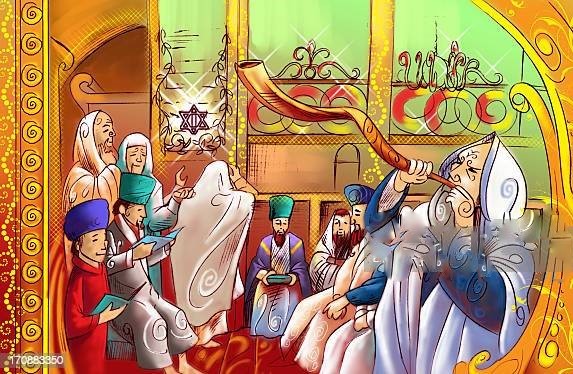SHABBAT: YESHIVAT HAVERIM – BABYLONIAN TALMUD p53

MISHNA VII.: For three sins women die of childbirth: for negligence (of the laws) during their
menstruation, neglect of separating the first dough, and for neglecting to light the (Sabbath)
lamp.
GEMARA: Why so? Thus a Galilean master lectured before R. Hisda: The Holy One, blessed
be He, says: I have created you with power of blood; I have warned you concerning blood; I
have called you “the first produce” [Jer. ii. 3], and charged you to sacrifice the “first of your
dough” [Numb. xvi. 21]; the soul that I gave you is called a light, and I have charged you
concerning the (Sabbath) light. If you observe these things, it is well; if not, I shall take your
souls. But why should this happen at the time of childbirth? Said Rabha: When the ox falls or is
felled, it is time to sharpen the knife. 1
And when are the sins of men passed upon? Said Resh Lakish: When they pass a dangerous
place that is like a bridge (which is unsafe). Rabh would not embark on a ship that carried an
idolater. Said he: “His time to be punished may come, and I (being on the same vessel) may
have to suffer with him.” Samuel, however, would go to sea only on a vessel which carried
idolaters, saying: “Satan hardly ever metes out punishment to two people” (of different beliefs).
R. Janai always examined a vessel before he embarked. This he did in conformity with his own
theory elsewhere, for thus he taught: “A man should never place himself in danger, expecting
that a miracle will be wrought for him; for it may be that no such miracle will be wrought, and if
a miracle is wrought for him, it will be deducted from the reward due his merits in the
world to come.” And R. Hanin said: “Where is this to be found in the Scripture?” From the
verse: “I am not worthy of all thy kindness and of all thy truth” [Gen. xxxii. 11]. R. Zera would
never walk under date trees in stormy weather. R. Itz’hak b. R. Jehudah said: A man must
always pray that he should not become sick, for if sickness befall him, he must be possessed of
special virtues in order to get well again. And to the question of Mar Uqba: Is this to be found in
the Scripture? He was told that the school of R. Ishmael maintains the passage in question is to
be taken from Deut. xxii. 8–viz.: “Peradventure one may fall down from there.” The word
“Hanofel,” which is in the past tense and implies that he has fallen down, although such a case
had not happened as yet, is simply a matter of conjecture on the part of this school, which
considered a predestined thing as a matter that had already occurred, because the fall was
already predestined for the guilty person; as it is said: The reward of virtue is, however, brought
about by a meritorious person, while the chastisement for sin is dealt out through a sinner (and
his not making a railing around his roof constitutes him a guilty person). [See Deut. xxii. 8.]
 SUNDAY PRAYER: HOCHMA-SHACHARIT שַחֲרִית MORNING PRAYER
SUNDAY PRAYER: HOCHMA-SHACHARIT שַחֲרִית MORNING PRAYER SUNDAY PRAYER: HOCHMA-TIKKUN CHATZOT תקון חצות-TIKKUN RACHEL & TIKKUN LEAH
SUNDAY PRAYER: HOCHMA-TIKKUN CHATZOT תקון חצות-TIKKUN RACHEL & TIKKUN LEAH SUNDAY PRAYER: HOCHMA- KABBALAH MED-TIKKUN CHATZOT תקון חצות – LESSON WITH RAV MICHAEL LAITMAN
SUNDAY PRAYER: HOCHMA- KABBALAH MED-TIKKUN CHATZOT תקון חצות – LESSON WITH RAV MICHAEL LAITMAN